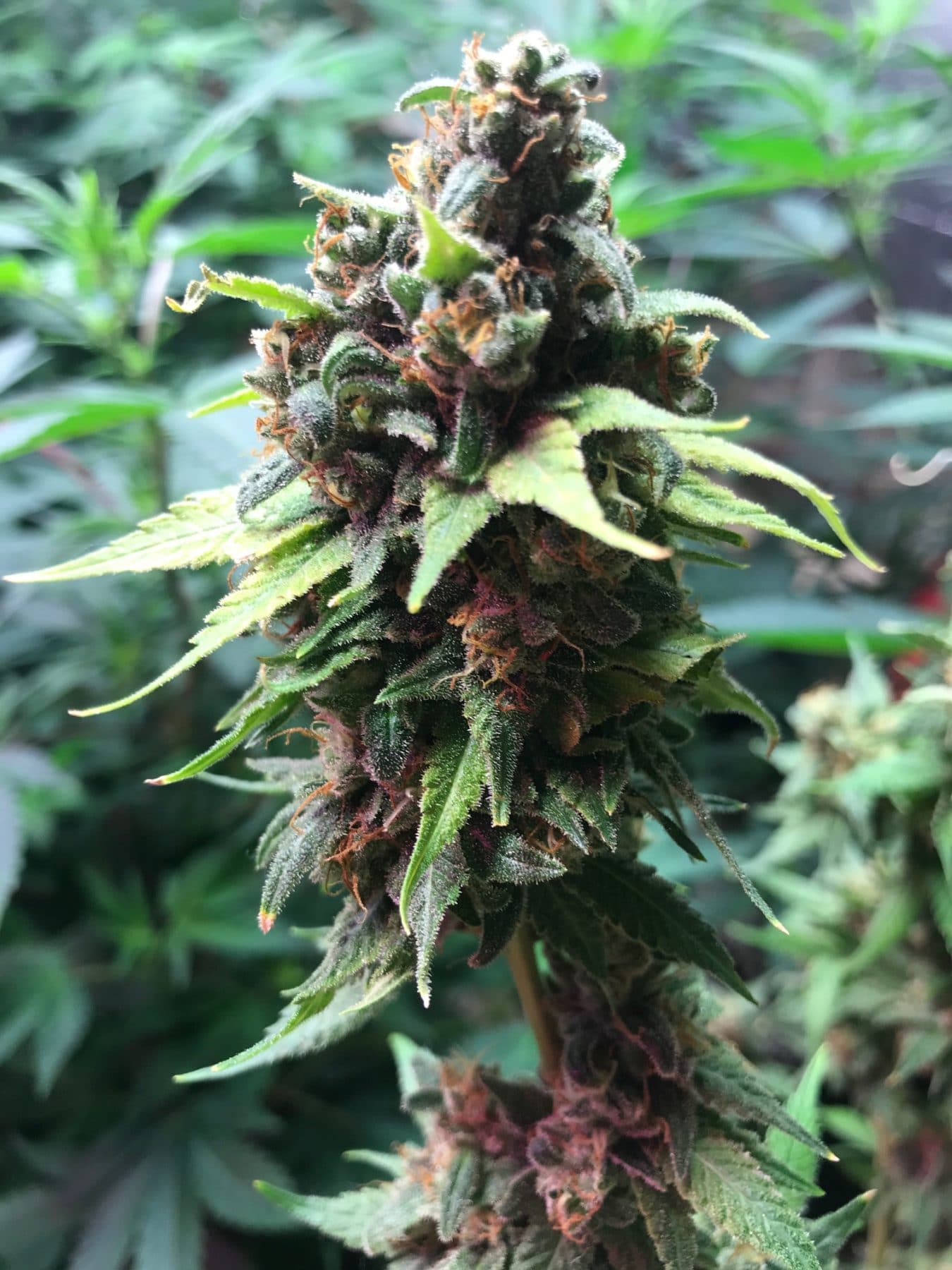
Choosing the Right Fertilizers for Your Indoor Cannabis Garden » How to Grow Weed Indoors
Organic vs. Synthetic: Choosing the Right Fertilizers for Your Indoor Cannabis Garden
When cultivating cannabis indoors, the choice of fertilizer plays a crucial role in determining the health, potency, and yield of your plants. With a wide variety of fertilizers available on the market, it’s essential to understand the differences between organic and synthetic options to make an informed decision that aligns with your growing goals. This comprehensive guide will explore the pros and cons of organic and synthetic fertilizers, their impact on plant growth, and how to choose the right fertilizer for your indoor cannabis garden.
Understanding the Basics: Organic vs. Synthetic Fertilizers
Before diving into the specifics, it’s essential to understand what differentiates organic fertilizers from synthetic ones.
Organic Fertilizers
Organic fertilizers are derived from natural sources such as plant matter, animal waste, and minerals. They provide essential nutrients like nitrogen (N), phosphorus (P), and potassium (K) in a form that plants can absorb, but they also contribute to the overall health of the soil by improving its structure, promoting beneficial microbial activity, and increasing water retention.
Common types of organic fertilizers include:
- Compost: Decomposed organic matter that enriches the soil with a wide range of nutrients.
- Manure: Animal waste that provides a slow-release source of nitrogen and other essential nutrients.
- Bone Meal: A source of phosphorus and calcium, derived from ground animal bones.
- Fish Emulsion: A liquid fertilizer made from fish waste, rich in nitrogen and trace elements.
Synthetic Fertilizers
Synthetic fertilizers, also known as chemical or inorganic fertilizers, are manufactured through chemical processes. They provide plants with readily available nutrients in specific ratios, allowing for precise control over the nutrient intake of your cannabis plants. Synthetic fertilizers are typically composed of concentrated forms of N, P, and K, often mixed with additional micronutrients to address specific deficiencies.
Common types of synthetic fertilizers include:
- Granular Fertilizers: Solid, slow-release fertilizers that dissolve gradually in water, providing a steady nutrient supply.
- Liquid Fertilizers: Concentrated liquid nutrients that are mixed with water and applied directly to the soil or as a foliar spray.
- Soluble Fertilizers: Powders that dissolve quickly in water, providing immediate nutrient availability.
Pros and Cons of Organic Fertilizers
Organic fertilizers offer several benefits, but they also come with some challenges. Here’s a closer look at the pros and cons:
Pros
- Improves Soil Health: Organic fertilizers enhance soil structure, promote microbial activity, and increase organic matter, leading to healthier and more resilient plants.
-
Slow-Release Nutrients: The nutrients in organic fertilizers are released slowly over time, reducing the risk of nutrient burn and providing a steady supply of nutrition to your cannabis plants.
-
Eco-Friendly: Organic fertilizers are derived from natural sources and are less likely to contribute to environmental pollution compared to synthetic fertilizers.
-
Enhanced Flavor and Aroma: Many growers believe that organic fertilizers contribute to better flavor and aroma profiles in cannabis, as the plants are grown in a more natural and balanced environment.
Cons
-
Inconsistent Nutrient Content: The nutrient content of organic fertilizers can vary depending on the source, making it challenging to achieve precise nutrient ratios.
-
Slower Results: Organic fertilizers release nutrients slowly, which may delay the visible effects on plant growth, especially in the early stages.
-
Pest and Disease Risks: Organic materials, such as compost and manure, can sometimes introduce pests or pathogens into the grow room if not properly processed.
Pros and Cons of Synthetic Fertilizers
Synthetic fertilizers are popular among indoor cannabis growers for their ease of use and precise nutrient delivery. However, they also have drawbacks:
Pros
- Immediate Nutrient Availability: Synthetic fertilizers provide nutrients in a form that plants can absorb quickly, leading to faster growth and quicker results.
-
Precise Nutrient Control: With synthetic fertilizers, you can easily adjust nutrient ratios to meet the specific needs of your cannabis plants at different growth stages.
-
Ease of Use: Synthetic fertilizers are typically easy to apply, with clear instructions on dosage and application frequency, making them ideal for novice growers.
-
Consistent Quality: Synthetic fertilizers are manufactured to deliver consistent nutrient content, ensuring that your plants receive the same level of nutrition with each application.
Cons
-
Soil Degradation: Over time, the use of synthetic fertilizers can lead to soil degradation, reducing its ability to retain water and support beneficial microbial life.
-
Nutrient Burn Risk: The concentrated nature of synthetic fertilizers can lead to nutrient burn if not applied correctly, damaging your cannabis plants.
-
Environmental Impact: Synthetic fertilizers can contribute to environmental pollution, particularly if excess nutrients leach into water sources, leading to problems like algal blooms.
-
Potential for Chemical Residues: Some synthetic fertilizers may leave chemical residues in the soil or plants, which could affect the quality of your cannabis.
How to Choose the Right Fertilizer for Your Indoor Cannabis Garden
Choosing the right fertilizer for your indoor cannabis garden depends on several factors, including your growing goals, the specific needs of your plants, and your personal preferences. Here are some key considerations to help you make the best choice:
1. Assess Your Growing Goals
Your goals as a cannabis grower will significantly influence your choice of fertilizer. Are you aiming for maximum yield, or is flavor and aroma your top priority? If you’re focused on yield and want quick results, synthetic fertilizers might be the best option. However, if you’re growing for personal use and value the natural aspects of cannabis cultivation, organic fertilizers may be more appealing.
2. Consider the Growth Stage of Your Plants
Cannabis plants have different nutrient requirements at various stages of growth. During the vegetative stage, they need higher levels of nitrogen to support leafy growth. In the flowering stage, phosphorus and potassium become more critical. Synthetic fertilizers allow for precise adjustments in nutrient ratios, which can be advantageous if you’re looking to optimize growth at each stage.
Organic fertilizers, on the other hand, provide a more gradual release of nutrients, which can be beneficial for overall plant health throughout the entire growth cycle.
3. Evaluate Your Soil and Growing Medium
The condition of your soil or growing medium is another critical factor in choosing the right fertilizer. If you’re growing in a rich, organic soil mix, you might not need to add as many nutrients, making organic fertilizers a more suitable choice. Conversely, if you’re using a soilless medium like coco coir or hydroponics, synthetic fertilizers may be necessary to provide the full spectrum of nutrients your plants need.
4. Assess Your Level of Experience
Your experience level as a grower can also influence your choice. Beginners might find synthetic fertilizers easier to use because they come with clear instructions and provide predictable results. Experienced growers, on the other hand, may prefer the challenge of working with organic fertilizers to create a more natural growing environment.
5. Think About Environmental Impact
If environmental sustainability is important to you, organic fertilizers are the more eco-friendly choice. They’re less likely to contribute to pollution and can enhance the health of your soil over time. Synthetic fertilizers, while effective, can have a more significant environmental footprint, particularly if used in excess.
Combining Organic and Synthetic Fertilizers: The Best of Both Worlds?
Many cannabis growers find success by combining organic and synthetic fertilizers in their indoor gardens. This hybrid approach allows you to enjoy the benefits of both types while mitigating some of their drawbacks.
For example, you might use organic fertilizers to improve soil health and provide a slow-release source of nutrients, while supplementing with synthetic fertilizers during key growth stages to boost nutrient availability. This strategy can lead to robust, healthy plants with excellent yields and quality.
Common Mistakes to Avoid When Using Fertilizers
Regardless of whether you choose organic or synthetic fertilizers, there are some common mistakes to avoid:
- Over-Fertilization: More isn’t always better. Over-fertilizing can lead to nutrient burn, stunted growth, and other issues. Always follow the recommended dosage and monitor your plants closely for signs of nutrient stress.
-
Ignoring pH Levels: The pH of your soil or growing medium affects nutrient availability. Ensure that the pH is within the optimal range (typically 6.0 to 7.0 for soil and 5.5 to 6.5 for hydroponics) to prevent nutrient lockout.
-
Inconsistent Feeding Schedule: Consistency is key when it comes to fertilization. Stick to a regular feeding schedule and adjust it based on your plants’ needs and growth stage.
-
Not Flushing Before Harvest: If you’re using synthetic fertilizers, it’s essential to flush your plants with plain water a week or two before harvest to remove any residual nutrients, improving the flavor and quality of your cannabis.
Conclusion
Choosing the right fertilizer for your indoor cannabis garden is a critical decision that can impact the health, yield, and quality of your plants. Whether you opt for organic fertilizers, synthetic fertilizers, or a combination of both, understanding the benefits and drawbacks of each type will help you make an informed choice that aligns with your growing goals.
Organic fertilizers offer a natural, eco-friendly approach that enhances soil health and promotes robust plant growth over time. Synthetic fertilizers, on the other hand, provide precise nutrient control and fast results, making them ideal for growers focused on maximizing yield. By considering factors like your growing medium, plant needs, and environmental impact, you can select the best fertilizer strategy for your indoor cannabis garden and achieve the results you desire.
Keywords
- Indoor cannabis garden,
- Organic fertilizers,
- Synthetic fertilizers,
- Cannabis cultivation,
- Plant nutrition,
- Grow room nutrients,
- Organic vs. synthetic,
- Cannabis growth,
- Indoor gardening,
- Fertilizer for cannabis













